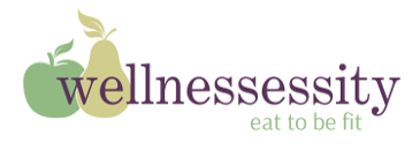Stress is a word we can all relate to, typically in a negative context. We often refer to stress associated with some kind of unfortunate event relatable to our lives.
Typical examples of distress can be anxiety or concern, perceived as outside of our coping abilities, unpleasant feelings and decreases in performance with mental or physical issues arising as a result. If that isn’t proof that our thoughts are connected to our body’s health, I don’t know what more is needed to insist on the strong correlation between the two.
Over the years in my practice, I’ve coached clients to deal with stress instead of fight it.
Offering the perspective of harmonizing with it versus ridding of it in their life can be easier said than done I admit. For some, the very thought of allowing a stressor to continue in one’s life is a stress in itself.
But let’s talk about those moments in our day-to-day routine or lives which are classified as Eustress, which drive us in a positive way. As motivating factors, this type of stress can be very rewarding, offering an opposite physiological reaction in response to it. Imagine receiving a promotion in the workplace, meeting a life goal or accomplishing a successful feat. These are examples that prove that stress can be rewarding. We fall asleep feeling like we conquered our day. Or, we feel like a load is lifted from our shoulders once a task is accomplished. Again, the perception of it is important, as some can view a negative stressor in an opposite context versus someone else. Whether it’s having a proactive mindset or using personal life experiences which propel a person’s outlook, the point here is that each of us responds differently.
It’s important to understand the reactions in the body on a physiological level in response to distress.
The alarm reaction occurs when the heart rate, blood pressure and breathing quicken in order to supply the muscles and the brain with more oxygen. More blood is sent to the skeletal muscles and the brain, while blood flow decreases to the stomach, kidneys, skin and liver. Sexual and immune (disease-fighting) functions are suppressed. Body chemicals that act as natural painkillers are released into the bloodstream in order to relieve pain. The body’s fuel sources, in the form of natural fats and sugars, are actively mobilized to supply us with extra energy. Our attention focuses on the alarming event and our senses become sharper. All of these highly coordinated reactions occur very quickly. The alarm reaction phase usually lasts a few seconds, although sometimes it may be shorter than a second in duration. This is your autonomic nervous system in full gear. When it’s stimulated, your body releases adrenaline and cortisol. These hormones are released very quickly.
After the alarm reaction stage, enters the resistance stage. Your body enters this recovery phase, yet remains on high alert for a while. If you overcome stress and the situation is no longer an issue, your body continues to repair itself until its hormone levels, heart rate and blood pressure reach their pre-stress levels. If the resistance stage continues for too long a period without pauses to offset the effects of stress, this can lead to the exhaustion stage.
Struggling with stress for long periods can drain your physical, emotional and mental well-being to the point where your body no longer has the strength to fight stress.
The physical effects of this stage also weaken your immune system and put you at risk for stress-related illnesses.
The connection between healthy eating and cortisol release has never been so widely researched as it is now. It would be logical to deduce that there’s never been a better time to work on your body’s health through sound nutrition while being confronted with life stresses or coping with them.
Although it’s somewhat of a mind-shift to focus on the positive attributes for your body’s health in times of negative life experiences, you can bank on the fact that having a positive element of control during stressful times can have a positive outcome. The reward centre of our brains light up in response to treating yourself with respect through a nutritional overhaul which in itself, allows the body to benefit.
Remember that change of any kind takes time. Patience, goal setting and trusting the process are excellent mantras to see you through as successful in a myriad of life’s hiccups.
Take the reigns and allow yourself to experience the benefits of a sound nutritional overhaul with an experienced professional. It might just be the best safeguard towards optimizing your immunity this coming winter in a continued year of unknowns.




